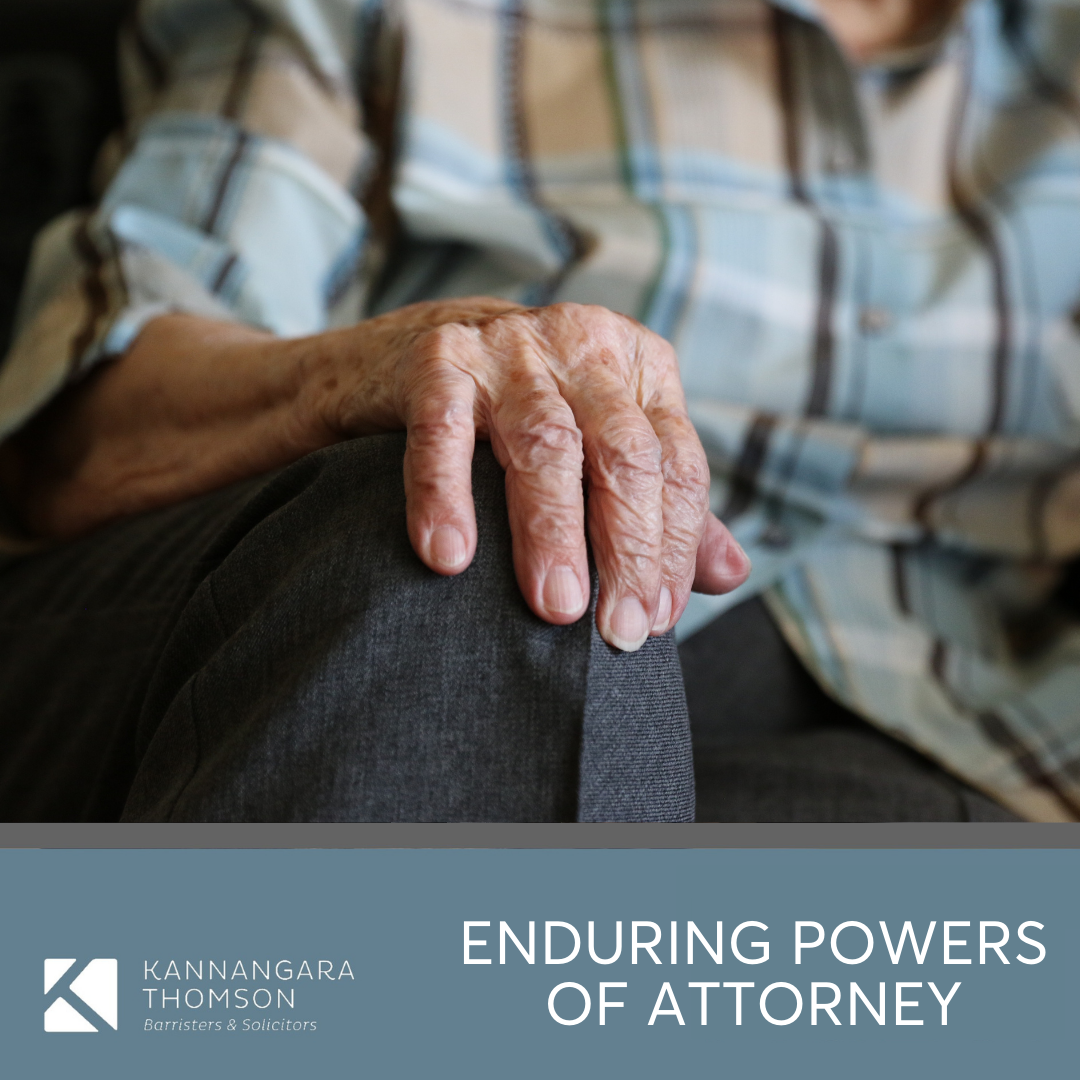Have you wondered what happens when you can no longer manage your affairs?
The Protection of Personal and Property Rights Act 1988 allows you to appoint people you trust to manage your affairs under Enduring Powers of Attorney. These documents come in two forms, one for personal care and welfare and the second for property matters.
In relation to your personal care and welfare, unless ordered by the court, and even then, only in special circumstances, you can only appoint one attorney, although you are able to appoint a first successor attorney and if you require, even a second successor attorney. Where an Enduring Power of Attorney in relation to property is concerned, you may have more than one attorney and once again, you can appoint a successor or successors. An enduring power of attorney in relation to property can also be created so that it also acts as a general power of attorney and can be used by your attorney(s) while you still have mental capacity. Or, you can choose to set it up so that it only comes into effect if you lose mental capacity.
However, an Enduring Power of Attorney in relation to personal care and welfare can only be activated when you have lost mental capacity and are ‘wholly incapable of managing your own personal welfare.’ You are presumed to be competent unless an assessment by a registered medical practitioner or specialist geriatrician shows otherwise. Significant changes were made with the passing of the Protection of Personal Rights and Property Rights Amendment Act 2007 and then in 2016 new standardised forms were introduced.
Changes introduced in 2007 included:
- The ability to appoint a Successor Attorney, in the event that the original attorney is unwilling or unable to act.
- The ability to authorise your attorney to act on certain specified matters or all matters.
- The abillity to require your attorney to consult with or provide information to specified persons.
- The power to authorise your attorney to ask the court to make or amend your Will.
If you wish to change your attorney or have concerns about the person or persons you have appointed as your attorney, while you have mental capacity, you can revoke the attorney’s appointment. If you have lost mental capacity and a family member or friends are concerned about an attorney’s actions, the only redress is through the courts. If you lose mental capacity and you do not have Enduring Powers of Attorney in place, an application can be made to the Family Court for someone to be appointed as your Welfare Guardian and/or your Property Manager. This is a much more expensive process, both in time and cost. The appointment of a welfare Guardian and/or property manager by the court would usually be for a limited duration such as 3 years, following which application must be made to the court for the
orders to be renewed.
Enduring Powers of Attorney are a very important estate planning tool and we recommend that everyone should have these valuable documents in place, regardless of age, so that in the event of an unforeseen loss of capacity, your affairs can be managed by someone you trust.
By Brent Selwyn of Kannangara Thomson
Kannangara Thomson’s specialist Elder Care team deal with all aspects of senior law.

